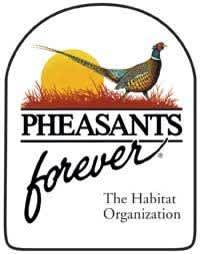Pheasants Forever and Partners Raise $2.7 Million Through Kansas Grassroots Conservation Campaign
Pheasants Forever 12.12.11

Ottawa, KS – Pheasants Forever and Quail Forever announce that in just 18 months after launching, the organization has raised more than $2.7 million through its Kansas Grassroots Conservation Campaign. The campaign is a partnership between the 41 Pheasants Forever and 11 Quail Forever chapters in Kansas, the U.S.D.A. Natural Resources Conservation Service, the Kansas Department of Wildlife, Parks and Tourism, corporations, foundations, and individuals to improve Kansas acres for pheasants, quail and other wildlife.
“Reaching $2.7 million was a milestone for the Kansas Grassroots Conservation Campaign, and we want to thank our partners, along with all those who reached into their pockets to lend a hand for wildlife and future Kansas hunters and conservationists,” said Jordan Martincich, Pheasants Forever and Quail Forever’s Regional Representative in eastern Kansas, “But, we’re not stopping here. With the support of those who will act as champions for Kansas’ outdoor heritage, we will continue striving to reach the goals of our initiative and saving Kansas’ upland tradition.”
Already, the Kansas Grassroots Conservation Campaign has worked to improve more than 60,000 acres for pheasants, quail and other wildlife; made possible by the eight Pheasants Forever biologists and three Habitat Specialist positions the campaign is helping to fund. These positions are helping improve upland habitat on both public and private land. Kansas, while known as a prominent upland state, has a very small percentage of publically owned land. The campaign has also led to the formation of a youth mentoring partnership with Kansas Department of Wildlife, Parks and Tourism, and Pass It On – Outdoor Mentors designed to positively impact 4,000 Kansas youth on an annual basis.
“An integral part of the Kansas Grassroots Campaign’s success is dependent on the Kansas Farm Bill Biologists, who increase the capacity to deliver conservation programs in their respective areas by providing landowners with customized wildlife conservation plans that integrate with the production goals of the landowners,” said Tony Jacobs, Pheasants Forever and Quail Forever’s Regional Representative in western Kansas, “Farm Bill Biologists provide Kansas landowners a ‘One Stop Shop’ for conservation programs and wildlife habitat planning. We intend to create a similar ‘One Stop Shop’ for youth focused outdoor activities through our youth mentoring partnership. Our goal is to combat the challenges facing Kansas’ outdoor tradition by providing every landowner with the opportunity to have a wildlife conservation draft for their property and provide young Kansans with positive outdoor experiences”
For information on how you can support the Kansas Grassroots Conservation Campaign and about Pheasants Forever and Quail Forever in Kansas, contact Jordan Martincich in eastern Kansas at (785) 242-3175 / Email Jordan; and Tony Jacobs in western Kansas at (785) 764-6240 / Email Tony.
Pheasants Forever, including its quail conservation division, Quail Forever, is the nation’s largest nonprofit organization dedicated to upland habitat conservation. Pheasants Forever and Quail Forever have more than 130,000 members and 700 local chapters across the United States and Canada. Chapters are empowered to determine how 100 percent of their locally raised conservation funds are spent, the only national conservation organization that operates through this truly grassroots structure.

